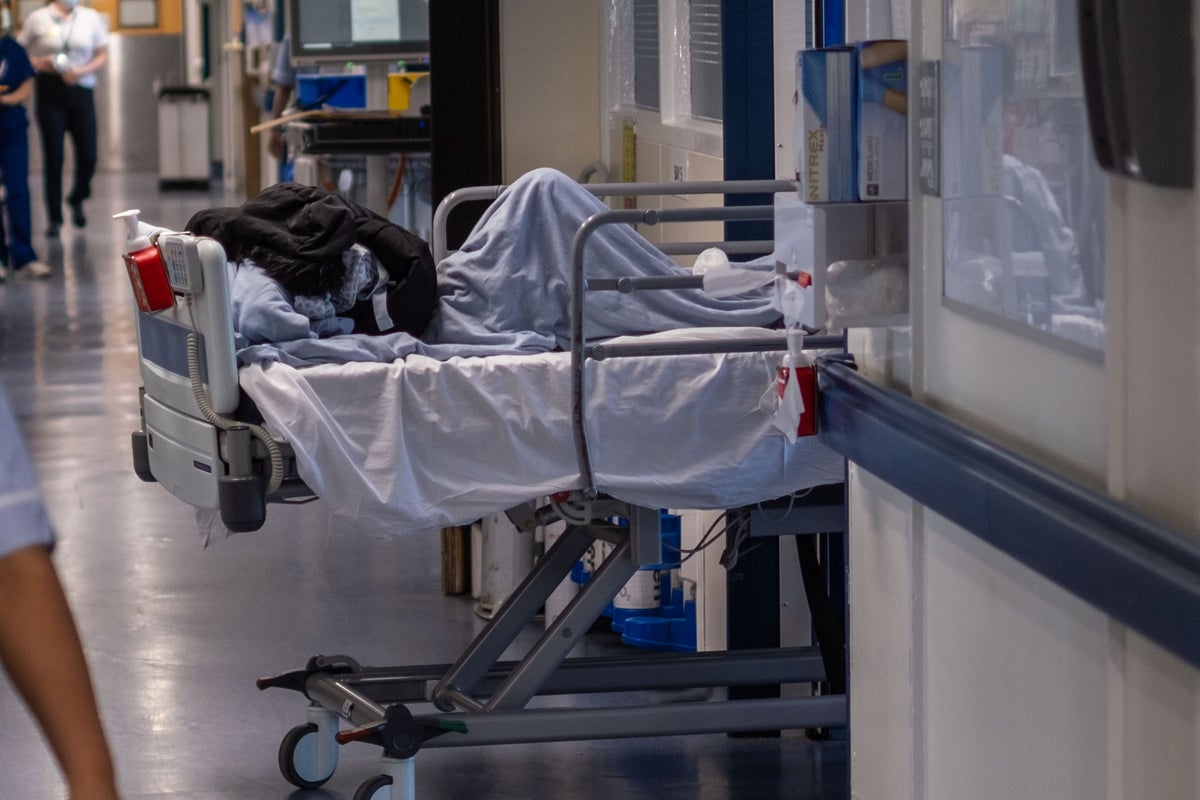
More than 80% of healthcare costs in the final year of life are spent on hospitals, according to a new report.
Analysis by the Nuffield Trust and the Health Economics Unit found that, for every £5 of healthcare spend, around £4 is spent in hospital, with £2.80 spent on emergency hospital care.
The work, commissioned by the charity Marie Curie, suggests UK spending for people in the last year of life across health, social care and social security is in the region of £22 billion.
More than half (53%) of that £22bn total goes on healthcare (£11.7bn) – or £18,020 per adult who died.
High-quality care at the end of life is an essential part of ensuring that people can die well but policymakers are flying blind when it comes to understanding what costs are incurred in supporting those in their final year of life
Some 81% of this healthcare spending is spent in hospitals (£9.6bn), with 56% (£6.6bn) of that going on emergency care.
In contrast, public spending on primary and community healthcare makes up 11% (£1.3bn) of health expenditure for people in the last year of life, with less than 4% (£414m) spent on hospice care, the analysis found.
People in the last year of life account for nearly 10% of all hospital costs, though this may be an under-estimate, it added.
It comes as MPs continue to debate the assisted dying Bill, which could give terminally ill people with less than six months to live the right to end their own lives with assistance.
Nuffield Trust deputy director of research and report co-author Sarah Scobie said: “High-quality care at the end of life is an essential part of ensuring that people can die well but policymakers are flying blind when it comes to understanding what costs are incurred in supporting those in their final year of life.
“It is staggering that there is no real overview of how much public money is spent on this vital care.
Too many people are spending their last months of life in hospital, visiting A&E or forced to call out ambulances rather than receiving well-anticipated, coordinated and holistic care in the community
“Our report marks a crucial step in shedding light on how much money is spent and where; while revealing that poor and disparate data means we still don’t have the full picture.
“The UK government has pledged to move more care out of hospitals as part of its 10 Year Health Plan for the NHS in England.
“But with £4 in every £5 of health care spend for those in their last year of life going on hospital care, our findings show the Government has a serious challenge ahead to make this a reality for those in need at the end of life.”
Marie Curie said the report is the “most comprehensive analysis of public spending costs at the end of life for over a decade”, examining costs for the 652,000 adults who died in the UK in 2022.
Dr Sam Royston, its executive director of research and policy, said: “Too many people are spending their last months of life in hospital, visiting A&E or forced to call out ambulances rather than receiving well-anticipated, coordinated and holistic care in the community.
All UK governments must prioritise palliative care to ease the strain on the overburdened and underfunded NHS and create a system that works for everyone
“Most devastatingly, too many people are dying in places where they don’t want or need to be.
“There must be a clear long-term ambition for all UK governments to shift health expenditure on people at the end of life from hospital to community settings supported by appropriate targets.
“For example, a long-term target to reduce hospital expenditure by 20% and a corresponding increase in expenditure on community-based health services over a 10-year period would double current expenditure on community services.”
Marie Curie also said there needed to be more investment in new ways of working, which are cheaper for the NHS.
One example is a Bradford service delivered by Marie Curie in emergency departments which identifies, assesses and treats people arriving in A&E to offer an alternative to hospital admission through a move into community palliative care.
Dr Royston said: “All UK governments must prioritise palliative care to ease the strain on the overburdened and underfunded NHS and create a system that works for everyone. We cannot afford to wait – the time to fix end-of-life care is now.”
James Sanderson, chief executive at Sue Ryder, said: “We must look at better ways to care for people at the end of life within hospitals and are calling on the Government to work with our sector to embed Sue Ryder ‘Alongside’ hospices on hospital grounds.
“This innovation would provide dying people admitted to hospital with the expert, compassionate care that families value so much from hospices. It would be a more cost-effective use of available funds and would instantly free up beds in hospitals.”







